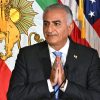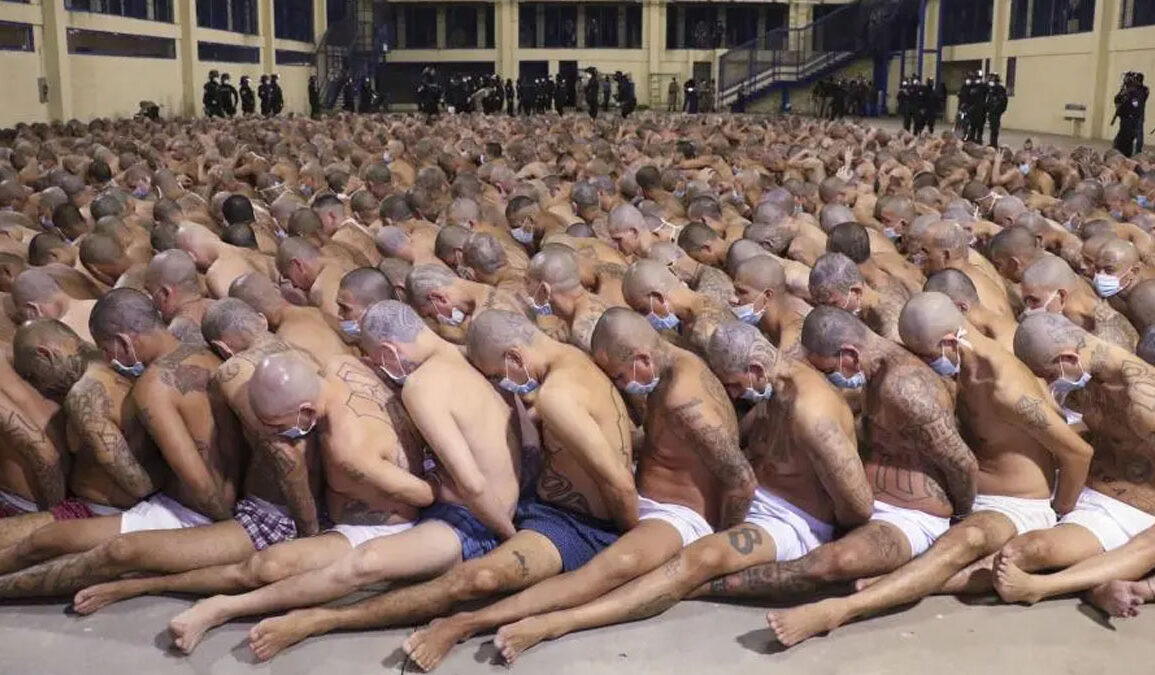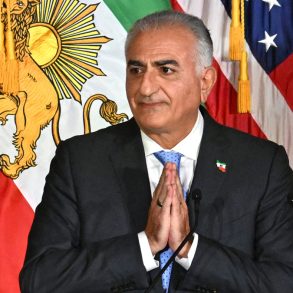The United States has reached an agreement to pay El Salvador $6 million to imprison 300 alleged gang members who are being deported from U.S. territory. This deal, which was negotiated between Salvadoran President Nayib Bukele and U.S. Secretary of State Marco Rubio, represents one of the first times that the U.S. has formally paid another nation to incarcerate foreign criminals instead of housing them in American prisons.
The detainees, mostly members of the Venezuelan Tren de Aragua (TdA) gang, will be held at El Salvador’s 40,000-capacity Terrorism Confinement Center, a facility notorious for its harsh conditions and mass incarceration of gang members. The agreement also includes two alleged members of MS-13, a gang that has long been a target of U.S. immigration enforcement.
While the U.S. has traditionally deported undocumented individuals and suspected criminals to their home countries, outsourcing their imprisonment to another nation is uncharted territory. The implications of this move extend far beyond immigration policy, raising legal, ethical, and diplomatic questions about the future of U.S. enforcement tactics.
Who Are the Prisoners?
The vast majority of those set to be deported under this agreement have been identified as members of Tren de Aragua, a violent criminal organization that originated in Venezuela’s prison system and has since expanded its influence across Latin America. The gang has been linked to a variety of crimes, including drug trafficking, human smuggling, and violent assaults.
President Donald Trump has labeled Tren de Aragua a “foreign terrorist organization,” a designation that allows for fast-tracked deportations under emergency national security measures. This classification also means that members of the gang can be detained and removed without the typical legal protections afforded to other non-citizens.
As part of the agreement, El Salvador will also accept two alleged MS-13 members. One of them, Cesar Eliseo Sorto Amaya, had already been convicted of double homicide in El Salvador before illegally entering the United States. The other was charged under the Biden administration as a high-ranking leader of MS-13.
Although the U.S. government has assured that those being deported are dangerous criminals, critics have pointed out that the process of identifying gang members has not been fully disclosed, leading to concerns that some individuals may be wrongly categorized.
The Cost and Benefits of the Deal
Under the terms of the agreement, the U.S. will pay $6 million to house 300 prisoners for one year, which comes out to about $20,000 per prisoner annually. While this is a substantial sum, Bukele described it as a “relatively low” price for the U.S. while still being high enough to help sustain El Salvador’s prison system.
For President Bukele, this deal aligns with his ongoing war on gangs, which has led to the mass incarceration of over 84,000 suspected gang members since 2022. His government has cracked down on criminal organizations with an iron fist, suspending constitutional rights and detaining thousands without trial. While this has dramatically reduced violent crime in El Salvador, human rights groups have criticized the government for alleged abuses, including reports of torture and deaths in custody.
For the Trump administration, outsourcing incarceration relieves pressure on U.S. detention centers while also fulfilling a major campaign promise—removing violent criminals from American communities. The administration has argued that deporting gang members will help prevent violent crime in U.S. cities.
A Precedent for Future Deals?
This agreement could be the first of many. A U.S. State Department document suggests that the government is considering setting aside an additional $15 million to expand the program, potentially sending even more deported criminals to El Salvador or other nations willing to accept them.
This raises an important question: Will other countries follow El Salvador’s lead and offer to house U.S. prisoners in exchange for financial compensation?
Historically, U.S. immigration enforcement has focused on deporting individuals back to their country of origin, but this new model could redefine how the U.S. handles criminal non-citizens. If successful, this system could be replicated in Guatemala, Honduras, or other nations with strong anti-gang policies.
Legal and Ethical Concerns
Despite its potential benefits, the deal has sparked controversy. Human rights organizations have condemned the agreement, arguing that the prisoners will be subjected to inhumane treatment in El Salvador’s prisons. Reports have surfaced about beatings, overcrowding, lack of medical care, and even deaths in custody. Critics warn that the U.S. may be complicit in human rights violations by sending prisoners to such conditions.
Furthermore, there is ongoing debate over whether the U.S. has the legal authority to deport individuals to a third country for imprisonment. The Alien Enemies Act, a rarely used law from 1798, was invoked by President Trump to expedite the removal of Tren de Aragua members. His proclamation states:
“I proclaim that all Venezuelan citizens 14 years of age or older who are members of TdA, are within the United States, and are not actually naturalized or lawful permanent residents of the United States are liable to be apprehended, restrained, secured, and removed as Alien Enemies.”
This means that suspected Tren de Aragua members can be detained without a trial and deported to a country of the U.S. government’s choosing. While the Trump administration argues that this is necessary for national security, critics contend that it sets a dangerous precedent for bypassing due process.
Already, a federal judge has expanded a block on Trump’s use of the Alien Enemies Act, suggesting that the policy could face additional legal hurdles.
While the details of the first prisoner transfer remain undisclosed, the agreement is moving forward. The U.S. and El Salvador will continue working out logistical details, while legal challenges could complicate implementation.
ACZ Editor: We need to be careful with this, it is the proverbial slippery slope. This appears to be within the law and a good idea given the prisoners are an illegal invading source. But some shrewd political down the road might very well want to send American criminals to foreign countries, which would have severe Constitutional ramifications. Despite the unpleasantness, we must take responsibility for our own. And we cannot simply have an out-of-sight-out-of-mind prison system.








